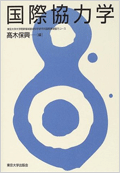第4回DOIS研究セミナー:李根雨 博士(国際農林水産業研究センター)
日時:7/14(木)10:30-11:30
場所:講義室とオンライン
講演者:李根雨博士(国際農林水産業研究センター)
講演タイトル:Farmer-to-Farmer Extension: Evidence from Shrimp Farmer Facebook Groups
オンライン参加の登録はこちらから。
要旨
This study investigates whether Online Communities of Practice (OCoP) developed and managed by farmers have non-exclusive and non-rivalry characteristics, such as public goods, that can replace or compensate for the shortcomings of traditional agricultural extension services. We study Indonesian shrimp farmers who are members of the Facebook group KUVI (Indonesian Vannamei Shrimp Community) and non-KUVI farmers from traditional communities. KUVI is a public group accessible to any Facebook user, so it can be considered a non-exclusive community. KUVI is also free from rivalries because as many users as the server will allow can access the group at once. However, individual qualities like age or education level might impede group functions, even in open Facebook groups. Accordingly, using a unique dataset of 1,657 shrimp farmers, comprising 273 KUVI users and 1,384 non-users, we empirically investigate the association between those individual characteristics and the use of KUVI. The findings indicate that KUVI is used more frequently by non-extensive shrimp growers than by extensive or conventional farmers. These users are also generally better educated and of higher socioeconomic status. Furthermore, the proportion of farmers who are members of ethnic minorities and religious groups is substantially greater among KUVI users than non-users. The extent to which users trust the information shared in the community is also investigated using the data, as well as who shares or inquires about information. We found that non-extensive farmers volunteered more information in KUVI, but they also testified that the information in KUVI was erroneous. As information disseminated in KUVI by the members is mostly fragmented, farmers are barred from obtaining the accurate information that would benefit their farming practices. Our finding reveals that even if the OCoP utilization might help compensate for the lack of information caused by limited extension services, the support of specialists and experts like extension workers is still necessary as aquaculture becomes high-density.




